What fascinating times we live in. COVID is certainly turning our lives upside down. As old and emerging ways of being jostle each other, we experience a sense of disorientation and disruption, that can easily set us on edge. Often we don’t quite know what has put us out of sorts. We are caught by moods and frustrations that catch us unaware some days. It’s an environment in which increased tension readily translates into conflict – either within ourselves or with others.
Navigating Moods and Frustrations
The secret of navigating our moods and frustrations, before they turn into full-blown conflicts, lies in recognising how we are feeling and understanding what has triggered us. When we do this we can take action, rather than act out. We can take better care of ourselves and of others. Cinnie Noble, the founder of CINERGY® Conflict Management Coaching suggests that one of the common triggers to conflict, lies in challenges to our identity. So how then is COVID impacting our identities and what can we do about it?
Challenges To Our Identity
Most of us have found our usual sense of identity being pulled apart and haphazardously put together again as we adjust and re-adjust to our circumstances under COVID-19. For many the role of provider has been challenged. Those lucky enough to have work find their roles changing through a series of secondments or jobs being redesigned and tasks reprioritised in work from home arrangements. While role clarity may seem elusive, efforts to get clearer on key responsibilities and accountabilities, even week to week is important. Those who are thriving in this environment seem to have formulated new identities as troubleshooters, frontline workers, strategists or workforce champions. Their new identities have an inherent change capability built in, their ability to shift focus and direction is implicit. However care needs to be taken not to get caught up in the adrenalin of the crisis.
The expression of who we are, in particular, our sense of autonomy or interdependence is being impacted as governments impose restrictions on our movements and leisure activities. In my own life I notice that my identity as an artist seems more distant, since my neighborhood life drawing studio has succumbed to lockdown. There is a loss involved, a quiet grieving before I search for what creative expression looks like now.
If we don’t process these losses, it’s easy to project the sense that something is missing onto others in our lives, particularly those who are nearest and dearest to us. If we’re not careful our significant others can start to look like the problem, the source of our discontent, rather than the constraints imposed on us. In our desire for autonomy we can start to push back against our fellow lockdownees or co-workers, as we search for more freedom. We can start to feel neglected in our desire for more human connection.
Under COVID-19 our identities as partners, parents, friends and colleagues are being re-enacted. Parents and their kids are negotiating what working and learning from home looks like. Our roles in the family are being re-engineered as career dads and mums become school teachers. We are shaping new rituals of family and friendship. I imagine that for those living alone, this has been particularly hard. The loss of casual catch-ups imposes new demands that we reach out and ask for what we need. But we can’t generalise. For each person the journey is unique.
Anchoring Our Sense of Self
So how can we manage in an environment where so much that we took for granted is in a state of flux?
When we find a solid anchor, a sense of who we are as a human that is more enduring than all the change around us, we are stabilised. An enduring sense of identity, is often connected to our values and the things we deeply care about. Connecting to that sense of self that has endured through our whole lifetime, despite the transitions of childhood, adolescence, early adulthood, maturity and ageing is one way of achieving a broader perspective. The bigger story of our lives acts like an anchor on the ocean bed in the midst of a storm.
What is your larger life story? What are the qualities that have brought you through other challenging times? What wisdom does that character or part of you hold? What advice would they offer you today?
Emerging Identities
There will be new identities that emerge at this time. My daughter has rediscovered her camera. Without the usual distractions, her artistic journey is in full flight. Others are discovering a love of the bush, time spent playing Scrabble with their kids, or a passion for genealogy as they uncover the myths that have shaped their family stories. There are facets of our identity, that are losing their grip on us. Both younger and maturer women report relaxing into their own bodies. There is a greater willingness to be seen in our diversity, seen for who we are.
Writing Your Own Story
So this COVID and Identity tale is more complex than it initially appears. It is a story of loss, confusion, discovery and metamorphosis. At times it will bring up vulnerability and at other times, when we allow it, profound reflections about what is important to us.
With so much change going on and so much to be done, it can feel like a luxury to spend time reflecting on yourself, however it’s essential to not just regaining equilibrium but making the pain and discomfort count for something. As an executive and conflict management coach, I feel profoundly grateful for seeing the growth that is possible in what seems like challenging or impossible circumstances. And COVID is certainly in that league.
If you’re curious to learn more about the relationship between identity and conflict, please connect with us. You may even want to check out our forthcoming virtual CINERGY® Conflict Management Coach Practitioner program.
